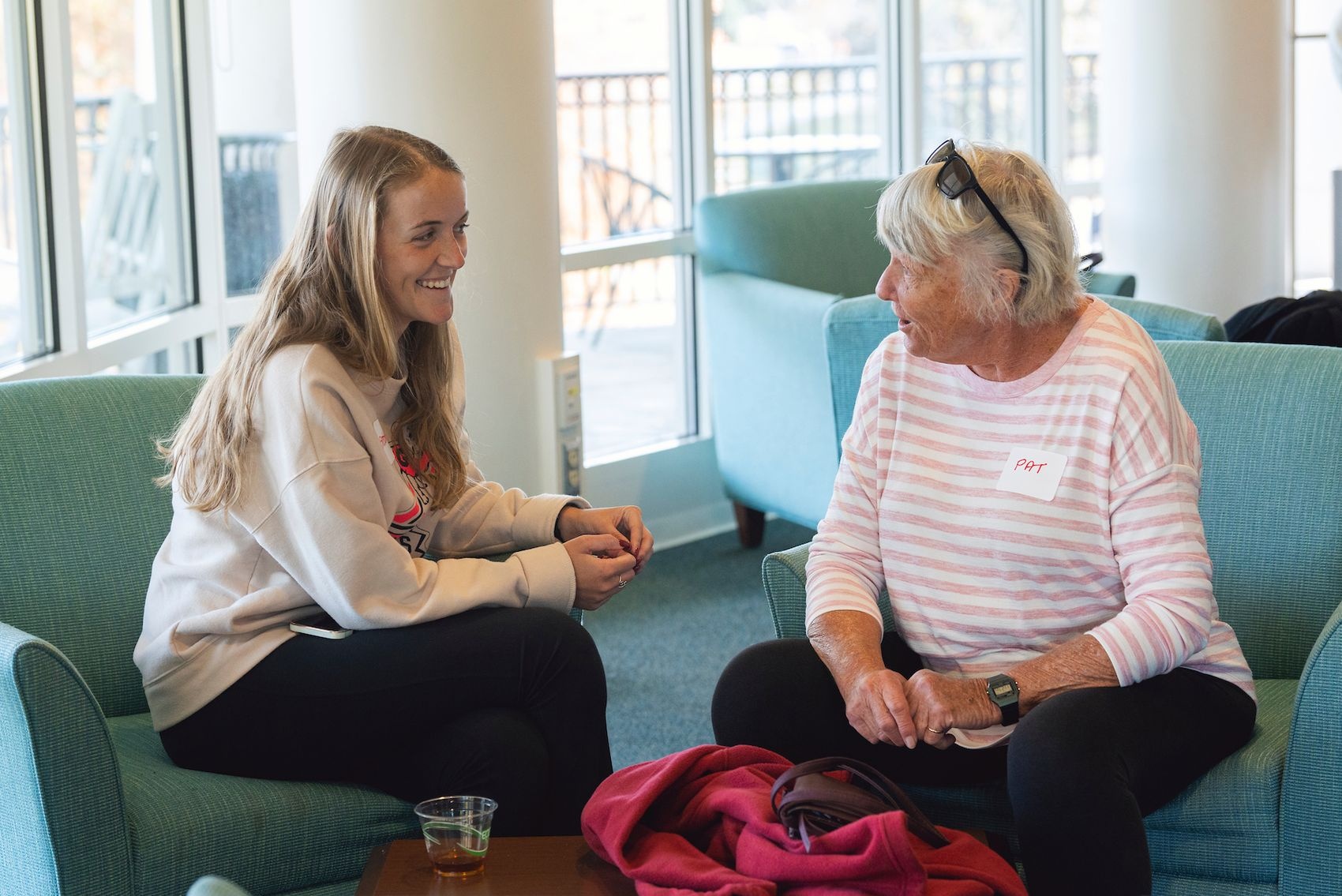
Photo: Jeff Janowski/UNCW
October 9th is Ageism Awareness Day, a crucial opportunity to confront and challenge stereotypes surrounding aging. According to the American Society on Aging, ageism refers to stereotypes, prejudice, and discrimination toward others or ourselves based on age. Ageism negatively impacts our health and well-being, our financial security, and the economy. It exists in many forms, influencing everything from personal interactions to public policy, and impacts us all at every age.
The Applied Gerontology program in the School of Health and Applied Human Sciences is proud to spotlight its ongoing efforts to combat ageism through innovative research, community outreach, and educational initiatives. Senior Lecturer Elizabeth Fugate-Whitlock says, “Unfortunately ageism is ever present in our society and is harmful to us as individuals and as a community. I believe one of the most important tasks I have as a gerontologist and an educator is to actively be anti-ageist and inform my students of the harm that ageist beliefs cause in an effort to promote healthy aging for us all.”
Fugate and Tina Newsham, professor and gerontology program coordinator created a “100th Day of School Tool Kit,” a set of resources designed to address the practice of encouraging early elementary students to dress like a 100-year-old on the 100th day of school. This practice frequently embraces negative stereotypes associated with aging, as children use canes or don gray wigs.
“Projects like our 100th Day of School Tool Kit are so important as they help us to spread this effort to a wider population, specifically elementary educators and their students,” Fugate-Whitlock says.
“This day reinforces the idea to children who are five and six years old, that to grow old is to become irrelevant, frail, weak, and out of touch.” Newsham says. “These are all negative ideas that are introduced to children at a time when they are developing their views on many different social groups. Elizabeth [Fugate-Whitlock] and I want to get this important resource to teachers and are working with the National Center to Reframe Aging to try to push it out at a national level.”
UNCW gerontology students are participating in an annual Intergenerational Design Challenge (IDC). An IDC is a gathering of people for the purpose of tackling an issue related to just about any topic or issue. This fall’s IDC is centered around the transformation of Wilmington and New Hanover County into an age-friendly community, with a focus on recreational and leisure opportunities, as well as the concept of a “senior center without walls.” Students in GRN 501: Aging and Society and a group known as Innovation Scholars, which includes undergraduate UNCW students and older adults from the community, are regularly meeting throughout October. They are exploring challenges related to this topic, engaging with community partners such as New Hanover County Parks and Gardens, Wilmington Parks and Recreation and the New Hanover County Senior Resources Center, and brainstorming creative solutions. On October 31, they will present their ideas, and the Innovation Scholars will continue to refine these concepts over subsequent months.
This article has the following tags: Students & Alumni School of Health & Applied Human Sciences College of Health & Human Services Research & Faculty Affairs


